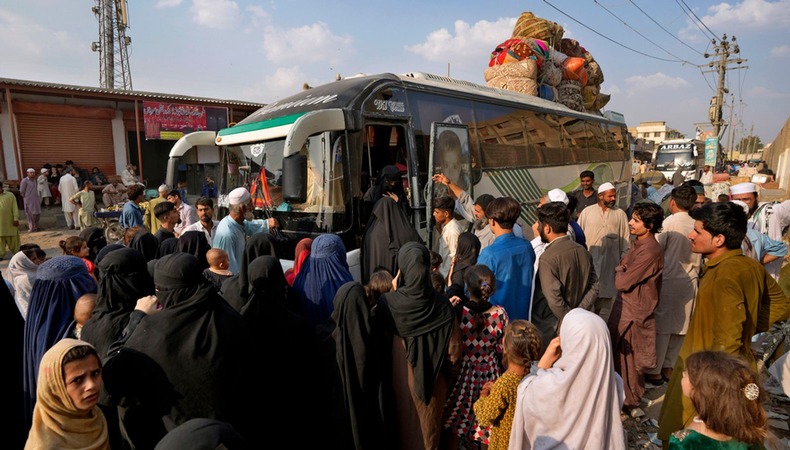Pakistan’s Exit Fees for Afghan Refugees Alarming

UN agencies and western countries are crying foul about Pakistan charging over $800 in exit fees for every Afghan refugee who fled Afghanistan when the Taliban retook power in 2021. In October, the Pakistani government announced a crackdown on undocumented foreigners living in the country, targeting Afghanis.
After the November 1 deadline, Pakistan took to mass deportations of undocumented Afghans, prompting the United Kingdom and the US to evacuate those who their governments had promised refugee status.
There are over two million Afghans living in Pakistan without legal status or protection, along with around 1.32 million registered and recognized Afghan refugees who have been residing in the country for decades.
Exit Fees is Shocking
Western diplomats in Pakistan said the exit permit fee in Pakistan was unprecedented internationally and had come as a shock. “I know it is very tough economically for Pakistan but really, to try to make money off refugees is really unattractive. The issue has also been raised by the two UN agencies in the lead on this mess – the UNHCR and IOM. It has also been raised in capitals and headquarters. I suspect everyone has passed the message to their Pakistani contacts.”
Source say the initial fee that was to be charged was $10,000 for each person, but the Pakistani government lowered it to $830. Another diplomat described the fee as bizarre and frustrating. “If Pakistan wants to facilitate the process of resettlement of refugees in the west, then they should not make it more complicated with such absurd conditions.”
He pondered about the justification of the exit permit fee. “To make a lot of money.”
Keep Reading
Pakistan Neutralizes 12 Afghani Terrorists in Fierce Border Clash
Africa-led Group of Countries Corner Europe for Slavery
Pakistan Policy Remains
Mumtaz Zahra Baloch, spokesperson for Pakistan’s Foreign Ministry, said there was no plan to change the policy. She highlighted that the concerned individuals have been in Pakistan for the last two years. “They are not refugees but immigrants with overstay in their visas and lack of documents. But we expect the concerned countries would expedite the visa and approval process so that they can leave for their destination as soon as possible.”
Baloch explained that more information was needed to process the refugees’ resettlement because some western countries had been giving them names without further details. It should be noted that about 20,000 newly arrived Afghans in Pakistan have referrals for resettlement to the United States Refugee Admissions Program (USRAP) through Priority 1 (P-1) and Priority-2 (P-2) categories.
And to be processed for resettlement, these individuals must be outside of Afghanistan. Furthermore, the US has not begun processing because of stalemate with Pakistan over how to process them.




